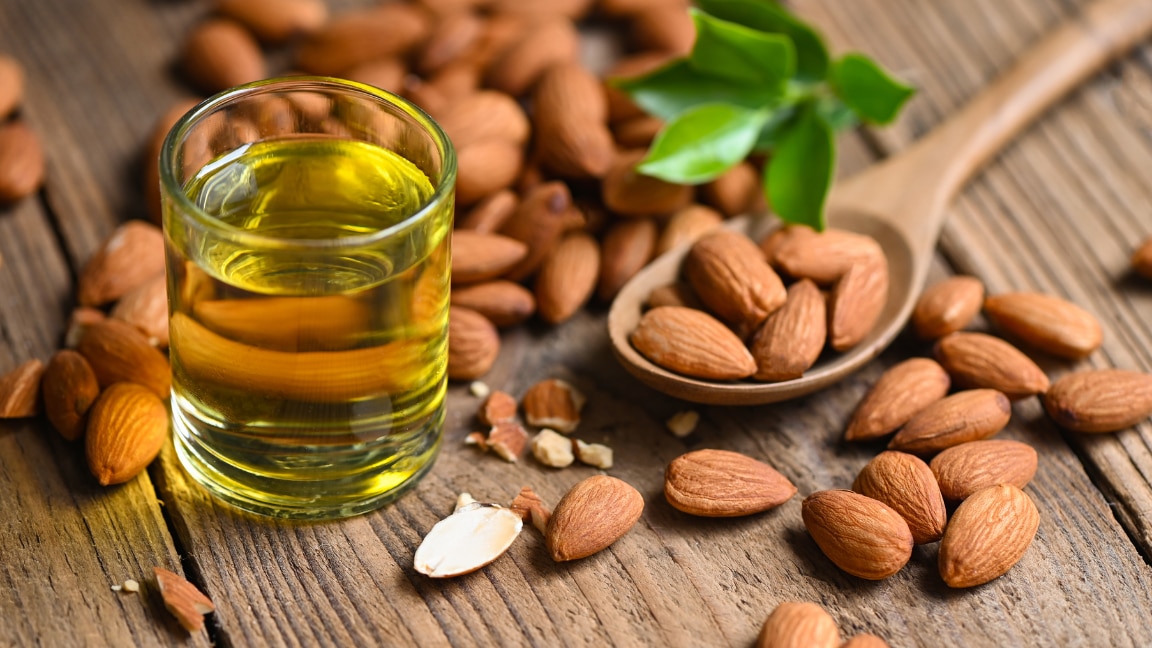- 01 What Is Almond Oil?
- 02 Is Almond Oil Good for Hair?
- 03 Benefits of Almond Oil for Hair
- 04 How to Use Almond Oil for Hair Growth
- 05 DIY Hair Masks:
- 06 How to Apply Almond Hair Oil (Step-by-Step Instructions)
- 07 Almond Oil vs Coconut Oil for Hair
- 08 Side Effects of Using Almond Oil for Haircare
- 09 FAQs on Almond Oil for Haircare
While most people are well aware of coconut oil's benefits for haircare, they are only slowly finding out about the advantages of adding almond oil to their routine. If you're in the same boat, read on.
Among the most well-loved of natural elixirs is almond oil. Celebrated as a traditional remedy and a contemporary go-to, it's a powerhouse ingredient for achieving strong, shiny, and healthy locks. To help you incorporate almond oil in your haircare routine correctly, we consulted the experts. Here's their best advice.
"Hair care with almond oil is a traditional practice going back centuries. Best practice is to apply straight to the roots instead of hair strands as it has low porosity," mentions nutritionist and health coach Divya Suhaney.






